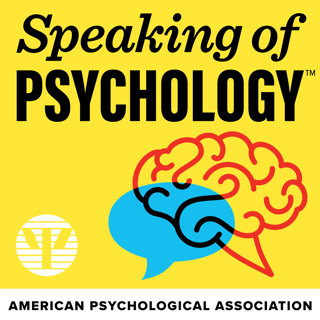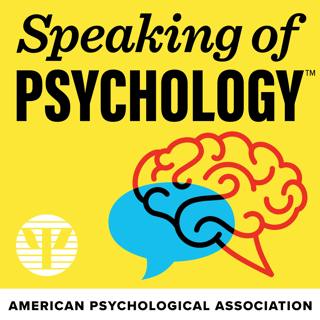
Molecules and morals: learning the link (SOP6)
Oxytocin has been called the “love hormone.” But recent research has shown that the brain chemical may play a role in regulating our moral behaviors. Researcher and author Paul Zak, PhD, discusses how his experiments and clinical studies have given us a glimpse into how oxytocin affects how we interact with one another, both face to face and online. APA is currently seeking proposals for APA 2020, click here to learn more https://convention.apa.org/proposals Learn more about your ad choices. Visit megaphone.fm/adchoices
3 Feb 20148min

Women and smoking (SOP5)
In 1964, the release of the U.S. Surgeon General’s Report on Smoking and Health prompted one of the largest public health behavior change success stories of the 20th century. Before and since this groundbreaking report’s release, psychology has been at the forefront of smoking cessation efforts. Research into the biological and behavioral mechanisms of addiction has led to many successful treatments for nicotine addicts. In this episode, we talk with Sherry McKee, PhD, a researcher whose work has focused on gender differences and smoking. She discusses why women have a harder time kicking the habit and what science can do to help them quit. APA is currently seeking proposals for APA 2020, click here to learn more https://convention.apa.org/proposals Learn more about your ad choices. Visit megaphone.fm/adchoices
13 Jan 201410min

Choosing foods wisely (SOP4)
Some foods marketed as healthy may instead sabotage our diets. Consumer psychologist Lara Spiteri-Cornish, PhD, studies how companies market foods to health-conscious consumers and why we should all be wary of what they’re trying to make us believe. APA is currently seeking proposals for APA 2020, click here to learn more https://convention.apa.org/proposals Learn more about your ad choices. Visit megaphone.fm/adchoices
16 Dec 201311min

Getting into a terrorist’s mind (SOP3)
Figuring out what makes a terrorist tick is not easy, but law enforcement and counterterrorism officials have been turning to psychologists to try to do just that. Psychologist John Horgan, PhD, has spoken face-to-face with former members of violent extremist organizations in an effort to understand how and why people become involved in terrorism as well as why some eventually turn away from such extremism. APA is currently seeking proposals for APA 2020, click here to learn more https://convention.apa.org/proposals Learn more about your ad choices. Visit megaphone.fm/adchoices
4 Nov 20138min

The good and bad of peer pressure (SOP2)
When a school year begins, students are dealing with new classes, sports and other school-related activities. Most students will also face the challenges of peer pressure. Psychologist Brett Laursen, PhD, talks about the science behind peer pressure and what parents can do to help their kids. APA is currently seeking proposals for APA 2020, click here to learn more https://convention.apa.org/proposals Learn more about your ad choices. Visit megaphone.fm/adchoices
4 Okt 201313min

Teaching social skills to autistic teens (SOP1)
Going back to school and making friends is a challenge, especially for students with autism spectrum disorder. Psychologist Elizabeth Laugeson, PsyD, discusses a training program that she developed to teach skills that allow them to interact with their peers and build lasting friendships. The Program for the Education and Enrichment of Relational Skills (PEERS®) is designed for adolescents through young adults and can be provided by professionals in the schools or mental health providers. APA is currently seeking proposals for APA 2020, click here to learn more https://convention.apa.org/proposals Learn more about your ad choices. Visit megaphone.fm/adchoices
12 Sep 201314min






















